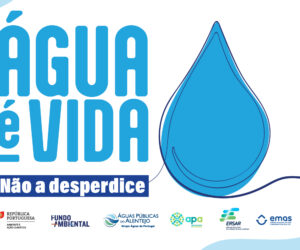 In an interview with Ovelha magazine, President of ACOS, Rui Garrido, remember the 40 years of Ovibeja, taking a trip back in time about the evolution of the event, through the places he passed through.
In an interview with Ovelha magazine, President of ACOS, Rui Garrido, remember the 40 years of Ovibeja, taking a trip back in time about the evolution of the event, through the places he passed through.
In the year they complete 40 year old, OVIBEJA's main theme is Associativism. In a sector where “we still maintain some individualistic spirit, when compared to what happens next door, in Spain", says Rui Garrido, president of ACOS and the organization of OVIBEJA, the associative effort on the part of farmers “is essential to gain scale and to be able to sell together”. At the beginning of the year marked by great protest from farmers across Europe, but also in Portugal, sector associations are looking forward to the new government and the new Minister of Agriculture, that ACOS leaders say they are unaware of, but from those who are expected “to know how to listen and talk to farmers”.
(SHEEP) This is already the 40th OVIBEJA. It's been a long road to get here... (RUI GARRIDO) They're already there 40 year old. I remember one of the first, if not the first, It was there where the Continent is today, in that area. Na height, did not yet belong to ACOS, but belonged to the Association of Young Farmers of Portugal (AJAP) and we put a tent there in a trailer. It was basically a sheep show, with competition, that I remember very well. And from then on, things have evolved, sometimes faster than we would like because time also passes for us.
At that time, they had some perspective that the fair could develop to the point where it is today? I don't think anyone thought, right from the start, that could take this dimension. Things have evolved over time, but it didn't happen from one year to the next. Na height, OVIBEJA coincided with the May Fair, which was organized by the City Council. And, much later, at the time when Professor Cavaco Silva was Prime Minister, is that the Wool Pavilion was handed over to ACOS, Where did OVIBEJA start?. Later, yet, with PEDIZA, which was an instrument that appeared to support the Alqueva Zone, financing was obtained for the construction of the Fairs and Exhibitions Park, for which the Chamber and ACOS jointly presented a project that was approved and from then on the fair began to be held here. However, and until the new space is a reality, we expanded the fair area, occupying the entire area between the Pavilhão das Lãs and the future Fair Park. They are 40 year old, with a lot of history, and which is also the objective of this year of Ovibeja.
Think about agricultural associations… Sim, the fair is dedicated to associations, which is a very current topic.
And ACOS is a reference on this topic. A great reference. There was already a farmers' association in Beja, which was the Baixo-Alentejo Farmers Association (fATHER), but it was not very suited to livestock farming, since at the time there were serious problems related to Agrarian Reform, the delivery of land, with occupied land, etc., and the association was more focused on intervening in these areas and also on topics related to cereals. That is why, There was a group of people who felt there was a need to create another association, with the characteristics of ACOS, more focused on the issue of livestock.
But the scope of ACOS was later extended to other areas of agricultural activity? Sim. Although the majority of ACOS members are still livestock producers,, at a certain point we felt that the association was growing, there were new members who didn't even have livestock, and that agriculture here in the area had prospects for development with Alqueva, and, that is why, there was a need for the association to change its statutes to become more comprehensive. Nowadays we have many associates, among which I also include myself, who are not even livestock producers.
The region has lost weight in livestock production? Do Not. Livestock farming has a huge importance in Baixo-Alentejo, either in Alentejo in general. We never tire of repeating that 85% of the Useful Agricultural Surface of Alentejo is rainfed and that non-irrigated land continues to have a great weight throughout the region. How to understand, in the dryland there are basically agricultural and forestry farms and if we want to maintain activity and people in the rural world, in rainfed areas and weaker soils, this type of exploration is essential. That is why, This weight will remain and we even want to strengthen it to reinforce the human presence in rural areas.
Returning to associations, It is often said that farmers are very individualistic. They maintain this characteristic or levels of association have increased in Portugal? Fortunately things have evolved, but slower than what we liked. Today we have many contacts with Spanish partners with whom we sell wool, sheep, calves, we buy them food, etc. We have great partnerships with our Spanish neighbors in Andalusia and Extremadura and we see that, especially in the agricultural sector, we are light years away. They have evolved much more and trade together much more than we do. Incomparably. Por cá, there are success stories, but things are done very slowly and we still maintain some individualistic spirit.
And how does this individualism manifest itself?? For example, we hold cattle auctions here at ACOS, monthly, during the year. There were auctions in Montemor-o-Novo and Évora, but the need was felt, that many associates made us reach, to also hold auctions here in Beja. We started holding these auctions, which many of our producers joined. There are even associates who do not sell otherwise, other than through ACOS. But, It doesn't happen like that to everyone, some of which, whenever they can, sell outside. We have enough animals to hold biweekly auctions. This is a criticism we make here at ACOS and it is an example of this individualism that still manifests itself. Many of us, only when we feel tight do we remember that association is important. And it is important at all levels.
Which are? It is important for us to gain scale, It is important for us to be able to sell together, to get used to trusting our associations and cooperatives. I, for example, I was a cereal producer until recently, but he delivered what he produced to the Beja Cooperative and didn't even ask when or how much he would receive. They didn't even know. Only after selling at the best possible price did they pay their collaborators. But it is a path on which we still have a long way to go and hence this OVIBEJA theme, when complete 40 year old, be so current.
There are still payments that have not been made
At an agricultural level, The first months of the year were marked by much protest from farmers, across Europe, but also in Portugal. The reasons for the dispute have already been resolved or have just been paused? Problems still remain. Demonstrations in Europe began for several reasons, some of them different from the contestation in Portugal but, who had a very great influence on these spontaneous movements that emerged, leading them to act in a similar way.
The big dispute had to do with unfair competition regarding the entry of products from outside the European Union and which arrive cheaper because they are not produced with the same environmental requirements to which we are obliged in Europe.. These obligations are to be fulfilled, but then we import products from everywhere, without these same requirements being imposed on these countries. There, therefore, There is great hypocrisy here that the European Commission must put an end to.
And here, there were specific requirements? This theme also exists here, but at the Portuguese level the protest was reinforced by the non-payment of aid. And this was the last straw that broke the camel's back.. In summary, non-payment of 25 percent of aid for integrated production and 30 percent to organic production, was at the center of the Portuguese farmers' protests. PEPAC will have to be changed and structured, since it was finished in a hurry and last year it was out of order due to not taking into account a series of issues related to the pandemic, the brutal increase in production factors, etc., being more negative for farmers than the previous CAP, because it brought less help.
Which translated into what?? Formerly the Single Payment Regime (RPU) had two components: a componente do RPB (Base Payment Scheme) and a more environmental component which was the Greening, and the aid was divided – 60% to one side and 40% To the other, respectively. With this CAP the Greening it disappeared, but we continued to be obliged to maintain the same environmental rules, but without any kind of compensation. To replace them, so-called ecoregimes were created, where integrated production and organic production were integrated. Naturally, farmers signed up en masse, far exceeding the expected applications.. It was announced that there would be cuts, in those two eco-regimes, but also in aid for pastures. In addition to what was happening in Europe, the dismantling of the Ministry of Agriculture, its loss of importance and image, the confusion and difficulty of the applications, etc, caused farmers to react.
The protests, However, stopped because the situation had been minimally resolved? There were negotiations soon, namely in a meeting between CAP and the previous prime minister António Costa, in which it was promised that the aid would be fully paid. But the moment we're talking (early April) that hasn't happened yet. The former minister also met with the various movements in protest, where he kept his promises, although we know that they would probably no longer be fulfilled during his time in government. It is now up to the new government to take the necessary steps to review PEPAC and guarantee missing payments not only for this, as well as for the coming years.
We hope that the new minister knows how to listen to production
What is the position of ACOS in relation to this new minister who seems to have no great record when it comes to the agricultural sector?? What expectations do you have?? We don't know this new minister, I only know what I read in the media. He has been an MEP, knows well how negotiations work, What is important. I think he is a man outside of agriculture, but I have also been told that he is a person who knows how to listen and that is what we want now. We want there to be a minister who knows how to listen to production, who knows how to talk to us, who knows how to listen to our problems and who, together with us, let's find solutions. This is what we expect from this new minister and this is what we expect from any Minister of Agriculture.
Last year, nor the government, nor the previous Minister of Agriculture, were invited to visit OVIBEJA. Now with OVIBEJA at the door, it will be a good opportunity for Alentejo farmers to meet the new minister. Let's hope they come. This year we made a point of inviting the Prime Minister and the Minister of Agriculture. Last year we did not invite for the reasons we explained at the time, but this year we want to have them here and we want to talk to them, of course, and present to them the questions we have open. And there are many. Since the PEPAC reform, to the unresolved problems of the drought. In addition to the payment of aid that we have already mentioned, and which will imply an annual increase in the State Budget of around 60 million, We will certainly address topics that have to do with investment in agriculture, the non-eligibility of olive groves in the Alqueva influence zone, the creation of small irrigated areas on livestock farms, among others.
The drought issue was resolved with this year's rains? Fortunately this year has been rainy. Just look at our fields and the trees that don't even look the same. But we still have water deficiencies in some reservoirs, particularly in those located further south. They have all been in water, but its level was so low that this rain, despite being beneficial and reasonable, it was not enough. This year it hasn't been watered yet. But, last year, in April, it was in the middle of the irrigation campaign.
You spoke a little while ago about the olive grove. The high prices currently observed in the olive oil sector are structural or merely cyclical? It's cyclical. What is basically behind this is the fact that in recent years there have been no olives in Spain due to the drought, with the consequent reduction in olive oil reserves. Spain, which is the world's largest producer of olive oil, and where the rainfed area is very relevant with several hundred thousand hectares of olive groves in Andalusia, suffered very sharp drops in production, and this increased the price worldwide.
This price increase has also reduced olive oil consumption. Or not? Already reducing consumption. That's the big problem. Only in Portugal, where there is tradition in the consumption of this product, the reduction in consumption has already reached 30%. Not to mention other types of markets where the consumption habit of this oil is much lower.. In other words, occasionally these high prices could be good for production, but in future terms it could have serious consequences.
Graça Carvalho is practically a member of the house
Returning to OVIBEJA, this 40th edition maintains the format of recent years or presents some new features? This year OVIBEJA has basically the same structure. There are only minor changes, some improvements we have introduced. For example, we're going to have some giant screens this year at the fair, who will broadcast the concerts at night, and during the day there will be advertising from sponsors and all kinds of useful information. Another novelty has to do with the creation of a space located in the singing pavilion where a small stage will be set up for local artists, Beja and surroundings, can work between 6:30 pm and 8:00 pm. It was something that already happened at OVIBEJA and that we decided to resume. A bar will be installed on the Fair grounds to support exhibitors, as well as a Tent – Innovation and Technology Pavilion – where several achievements relating to Competence Centers will take place, such as demonstrations of new technologies and colloquiums on current topics.
And what was the turnout of exhibitors to OVIBEJA this year?? The fair is full. This year we have more exhibitors than last year and, from the beginning of registration, that we noticed this very large turnout. We hope, that is why, May this be a great OVIBEJA, with emphasis also on the usual exhibition area, to be held in the same location as last year, this year dedicated to the theme of associations and the history of ACOS and Ovibeja. Near this area there will also be a PEPAC pavilion that will also have various materials on associations..
And the price of entry tickets remains the same this year? Entry prices remain unchanged. And, for all this, We hope for a great OVIBEJA, so time help us. It has rained enough so far for us to wish for some good sunny days during the six days of our great fair.
I have already said that invitations had been sent to members of the government. Beja once again has a minister in the new government cast, Maria da Graça Carvalho, who until now held the position of Member of the European Parliament, is the new Minister of Environment and Energy, after having been, in the government of Durão Barroso, Minister of Science and Higher Education. Being from Beja, is someone that ACOS hopes to be able to count on for greater dialogue? Sim, certainly. But there is another minister who is also linked to Beja and who went to high school here, who is the Minister of Internal Administration, Margarida Blasco… But regarding Graça Carvalho, she has a portfolio that she knows very well and whose subjects, even in European terms, has dedicated a lot. She has already been a minister and has a lot of experience. You know OVIBEJA very well and we have high expectations for your performance and we wish you all the best.
And it will be at OVIBEJA? Sim. It's practically a person here in the house, We've already spoken to her, has already confirmed its presence and, as such, in everything you need us, We will also be willing to help you, within our possibilities, of course.
























